About the author
John A. Graham is an American musicologist (PhD. Princeton University 2015) who specializes in the history of Georgian liturgical polyphony. His publications can be found at http://www.johnagraham.com/publications/
-
John A. Grahamhttps://www.georgianchant.org/author/develop_a8wovr/
-
John A. Grahamhttps://www.georgianchant.org/author/develop_a8wovr/
-
John A. Grahamhttps://www.georgianchant.org/author/develop_a8wovr/
-
John A. Grahamhttps://www.georgianchant.org/author/develop_a8wovr/
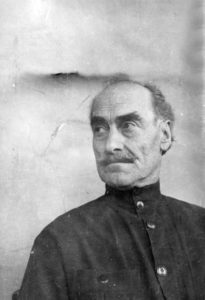
Sandro Kavsadze (1874-1939) was one of Georgia's greatest singers. Born in 1874 in the village of Khovle (in the Kaspi district of eastern Georgia), he was first taught to sing by his father, Grigoli Kavsadze, a priest. Later, Sandro continued to study singing at the seminary in the town of Gori. His teacher there, Simon Goglichidze, was a renowned singer himself, and within a few years Kavsadze had become a proficient singer and had been designated Goglichidze's deputy and substitute. (A certain Ioseb Jughashvili, later known as "Koba" and "Stalin", also studied in the seminary in Gori, where he was a contemporary of Sandro's.)

In 1893, after finishing his clerical studies, Kavsadze formed his own choir and performed concerts for charity; he also formed choirs in Tbilisi (in 1896) and Poti (in 1897).
His brother, Mikheil Kavsadze, was also a musician and a choir director.
Historic Recording
This East Georgian variant of Mamao Chveno was recorded by the Sandro Kavsadze Choir at the Kashweti St. George Church in Tbilisi in 1907. Note the static fifth interval sung by the outer voices, with the middle voice experimenting with the harmony through simple upward/downward gestures.
Read more about historic recordings made between 1902-1914 on the following page: Archival Recordings.
Further Career
In 1911, Sandro left his group to be directed by his brother Mikheil, and moved to western Georgia. He formed several choirs there — in Sachkhere, Tkibuli, Chiatura, Zestaponi and Kutaisi — and Kavsadze also taught Georgian folk music in schools and high-schools. In all, he spent twenty years in the region of Imereti, where he made an enormous contribution to the revival of traditional music and folklore.
Almost twenty years later, in 1930, Sandro was given the (rather Soviet) title of "Artistic Figure of Merit", and the thirtieth jubilee of his work was celebrated. In 1935 he was asked to move to Georgia's capital Tbilisi, where he was commissioned to set up and prepare an East Georgian Folkloric Ensemble for the "Decade of Georgian Culture" — an art and folklore festival which was to be held in Moscow.
In 1937, Kavsadze and his ensemble traveled to Moscow, where they performed to great acclaim, winning an award. After the festival, a meeting was held in the Kremlin between the Politburo and all the festival's participants; this meeting gave rise to the following anecdote:
The story has it that the festival's participants — singers, dancers, artistic directors, etc. — were gathered in the Kremlin's Georgievsk Hall, where they were nervously awaiting Stalin's arrival. At last, when the Man himself entered the room — A "hurrah!" resounded, but Stalin lifted up his hand to bid those gathered be silent. He looked around the room at length, clearly searching for someone. Everyone became anxious: Whom was he looking for?? What should they do?! At last, Stalin asked in a low voice, "if Sandro was there." Everyone breathed a sigh of relief, and the crowd parted to form a passage: at one end, Stalin; at the other, Sandro. It was of course protocol that the person meeting Stalin should walk up to him, but Sandro didn't move — a clear slight to the Great Man. They stared at each other for a few seconds, surrounded by the stunned crowd. Stalin then took the first step, followed by Sandro, and they met in the middle of the room, and embraced each other. "You have not changed," said Stalin, giving Sandro a pat on the back. Sandro remained silent, and patted Stalin on the back. "Indeed, you have not changed," repeated Stalin, patting Sandro on the back again. They conversed in low voices, Stalin asking Sandro if there was anything He could do for him? "Give me your pipe," said Sandro — The pipe has been a Kavsadze family heirloom ever since.
After Moscow, Sandro and his ensemble were bidden to travel on to Leningrad. However, shortly after the festival, Sandro (by then 63 years old) fell ill, and was hospitalized in the Kremlin. Lying in the hospital, Sandro received a letter. On the envelope was written "To Comrade Alexandre Kavsadze, from Stalin." The letter read: "Greetings to Sandro! ["sandros gaumarjos!" in Georgian] I happened to learn from Egnatashvili that you are in the Kremlin hospital. This is bad news, but the doctors tell me that you will get better soon. If you need anything, please let me know, for I am ready to help you in any manner. May you live for a thousand years! Your Soso, 1937."
Too ill to continue touring, Sandro remained in Moscow, and the Ensemble continued under the direction of his son, Davit Kavsadze (1907-1952). Having arrived in Leningrad, they repeated their success, and for his achievements Sandro was awarded an Order and was named "Honoured Artist of the Georgian [Soviet Socialist] Republic".
Sandro returned to Tbilisi shortly afterwards, where he died on 12 June 1939.
* * *
 In 1986, the Russian "Melodiya" label re-issued 16 old recordings of Sandro Kavsadze and his Ensemble on an LP entitled Sandro Kavsadze — Georgian Songs from the Archive (Melodiya M30―46085―86; see image of cover above; I believe this record has itself been re-issued as a CD). The following four songs were recorded from the LP:
In 1986, the Russian "Melodiya" label re-issued 16 old recordings of Sandro Kavsadze and his Ensemble on an LP entitled Sandro Kavsadze — Georgian Songs from the Archive (Melodiya M30―46085―86; see image of cover above; I believe this record has itself been re-issued as a CD). The following four songs were recorded from the LP:
Urmuli (Georgian: ურმული)
A carter's song from eastern Georgia
(recorded 1909)
Mtao, gadmishvi (G.: მთაო, გადმიშვი)
"Let me pass, o mountain!"
(recorded 1909)
Gutnuri (G.: გუთნური)
A ploughman's song
(date of recording unknown)
Chona (G.: ჩონა)
A Christmas choral traditionally sung from door to door
(recorded between 1907 and 1909)
Mikheil Kavsadze
Sandro's younger brother Mikheil was also an extremely accomplished and successful singer (and clearly quite a snappy dresser!). Here are some recordings of Kavsadze Jr. and his ensemble of singers (all recorded in 1914):
Herio, bitchebo! (G.: ჰერიო, ბიჭებო!)
A work song sung during scything
Lalo, va, i aralo (G.: ლალო, ვა, ი არალო)
Shashvi, kakabi (G.: შაშვი, კაკაბი)
"Thrush, rock partridge"
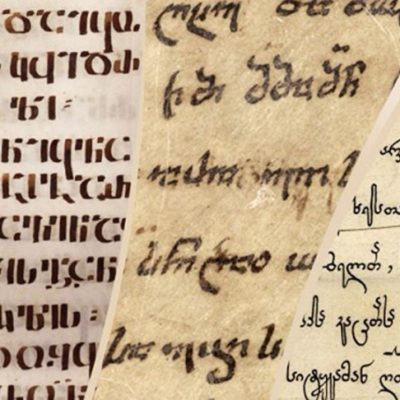

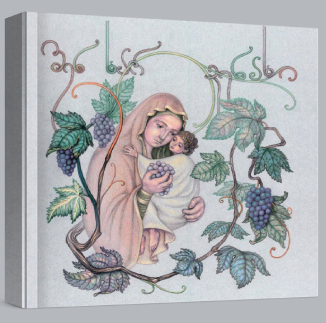
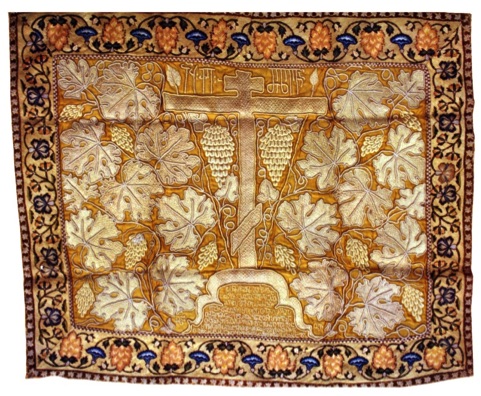
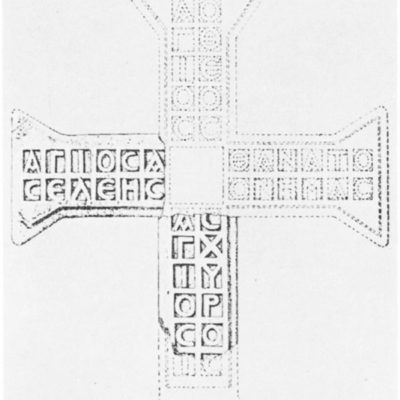
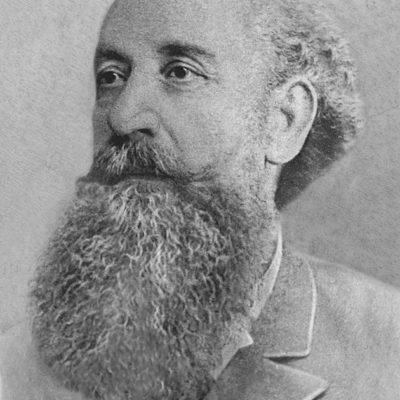
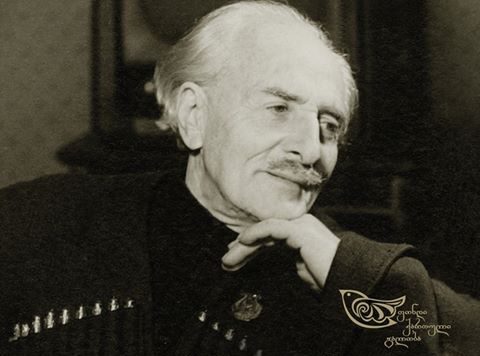
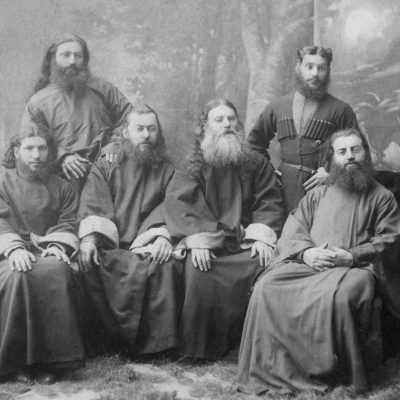
Leave a Reply